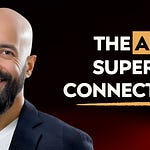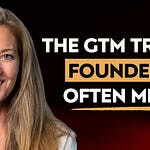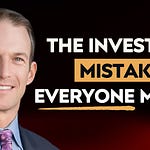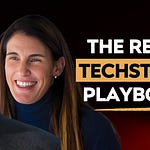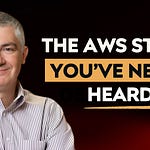The venture capital landscape is rich with diverse backgrounds, but few paths are as multifaceted as that of Timothy Chen, General Partner at Essence Venture Capital. In a recent episode of the Ignite Podcast with host Brian Bell, Chen shared insights into his early exposure to technology, his journey through corporate IT and engineering, and his transition into venture capital with a focus on dev tools and data infrastructure.
This post covers highlights from their conversation, including Chen’s views on the importance of founder-market fit, the role of intuition in venture investing, and the unique challenges of evaluating open-source startups.
From Engineering Beginnings to Microsoft IT
Chen’s career began with a deep love for technology, cultivated in his childhood through early exposure to computers and video games. Growing up in Taiwan, he was intrigued by the technical aspects of games and programming. This interest soon led him to study informatics at the University of Washington, a newer major that would later shape his approach to engineering and technology.
After college, Chen joined Microsoft, but his time there was challenging. Working in Microsoft’s IT division, Chen found himself in a space where career advancement was slow, and the work lacked the technical creativity he craved. Despite these challenges, he immersed himself in open-source projects as a means to learn and expand his technical expertise. This experience helped lay the groundwork for Chen’s eventual move to the startup world, where he co-founded HyperPilot, an AI-driven infrastructure company later acquired by Cloudera.
Embracing Startups and Open Source
While corporate life gave Chen technical experience, it was in startups that he found a more fulfilling path. Moving away from large organizations allowed him to work in dynamic environments where he could directly impact the products and projects he was involved with. His deep involvement in open-source technology became a defining part of his career and ultimately a key focus in his investing at Essence Venture Capital.
Essence VC, under Chen’s guidance, focuses on early-stage investments in developer tools and data infrastructure, particularly those rooted in open-source solutions. In the podcast, Chen explains that his understanding of open-source’s intricacies enables him to identify promising startups that challenge current assumptions and create new possibilities within tech.
Founder-Market Fit: The Core of Chen’s Investment Strategy
A significant part of Chen’s investment philosophy revolves around "founder-market fit." Unlike the more common "product-market fit," which gauges how well a product meets its market’s needs, founder-market fit evaluates how closely aligned a founder’s background and experiences are with the industry or problem they’re tackling. Chen shared that founders with domain expertise, especially in technical fields like IT or AI, bring valuable insights that can differentiate their approach.
For Chen, a successful startup team often includes founders with hands-on experience in the industry they’re aiming to transform. However, he also acknowledges that in tech, traditional rules don't always apply. Some of the world’s most successful companies—such as Shopify or Spotify—were started by founders who didn’t come from within the industries they disrupted.
Balancing Intuition with Data: The Art and Science of Investing
Venture capital often balances the hard data of past performance with the “gut feeling” that investors develop over years of experience. In his six years as a venture capitalist, Chen has honed his ability to trust his intuition, especially when evaluating highly technical founders. His expertise in infrastructure and open-source allows him to identify founders with the capability to innovate, even if they haven’t yet worked out their monetization strategies.
Chen describes this blend of art and science as critical to investing, especially in sectors like infrastructure and open-source, where the path to revenue may be long and uncertain. Chen shared his belief that understanding the technical nuances of a project is essential to supporting founders who are still exploring their product’s market potential.
Evaluating Open Source Startups: Metrics Beyond Revenue
When assessing open-source startups, Chen evaluates several unique factors beyond revenue, such as GitHub stars, forks, and the developer community’s engagement with the project. However, he stresses that these metrics alone don’t determine a startup's commercial success. Instead, he seeks projects that can transform user behaviors and budgets over time.
Chen gave the example of DuckDB, a high-performance data management tool built to operate on local machines, which challenges the assumption that all data must be stored in large cloud data warehouses. Companies like DuckDB illustrate the potential for startups to shift entire industries by changing fundamental assumptions and providing alternatives to established models like Snowflake or Databricks.
The Challenges and Joys of Portfolio Building in VC
Building a venture portfolio means balancing risk and reward, a process that varies greatly from one venture capitalist to another. Chen’s fund model favors diversification, with plans to invest in 30 to 35 companies per fund at the pre-seed level. This strategy, he explains, allows him to back technical founders even if they’re in the very early stages of their business, where risks are highest.
Interestingly, Chen’s views on portfolio construction align closely with Bell’s approach at Team Ignite, which focuses on a high volume of investments to increase the likelihood of supporting the next unicorn. Both investors agree that finding the right founders and supporting them through their journey can lead to breakthrough successes, despite the high rate of failure inherent in early-stage investing.
Key Takeaways for Aspiring Investors and Founders
This episode of the Ignite Podcast provides a treasure trove of insights for both venture capitalists and founders. Here are some key takeaways from Timothy Chen’s discussion with Brian Bell:
· Focus on Founder-Market Fit: Look for founders whose backgrounds align with the problem they’re solving. In highly technical areas, having a personal connection to the field can provide unique advantages.
· Embrace Intuition: Data-driven decisions are essential, but don’t underestimate the value of intuition, especially when it’s grounded in deep industry knowledge.
· Build for the Long Haul: For VCs, a diversified portfolio can be essential for finding the rare startup that will deliver outsized returns.
· Challenge Existing Assumptions: Open-source and infrastructure startups succeed when they redefine how the industry operates, even if they don’t have a monetization strategy from day one.
As the tech landscape continues to evolve, Chen’s perspective highlights the importance of a thoughtful approach to investing in highly technical, early-stage companies. His journey from Microsoft to startup founder and now venture capitalist serves as a reminder that the best investors are often those who understand both the technical and the human aspects of innovation. Whether you're a founder or an investor, this episode sheds light on what it takes to thrive in venture capital.
👂🎧 Watch, listen, and follow on your favorite platform: https://tr.ee/S2ayrbx_fL
🙏 Join the conversation on your favorite social network: https://linktr.ee/theignitepodcast
Chapters:
· Introduction to Timothy Chen & Essence Venture Capital (00:01 – 00:46)
· Early Beginnings in Tech and Gaming Influences (00:47 – 02:25)
· Corporate Life at Microsoft and the Turn to Open Source (02:26 – 06:15)
· Transition to Startups and Co-founding HyperPilot (06:16 – 09:04)
· The Importance of Founder-Market Fit (09:05 – 16:24)
· Balancing Intuition and Data in Venture Investing (16:25 – 18:46)
· Evaluating Open Source Startups: Beyond Revenue Metrics (18:47 – 25:22)
· Spotting Potential in Infrastructure and Dev Tools (25:23 – 29:37)
· Challenges of Portfolio Construction in Venture Capital (29:38 – 34:55)
· Lessons Learned from Failures and Successes (34:56 – 41:18)
· Investor Market Fit and Personal Investment Style (41:19 – 45:27)
· Long-Term Stress vs. Short-Term Challenges in VC (45:28 – 48:25)





